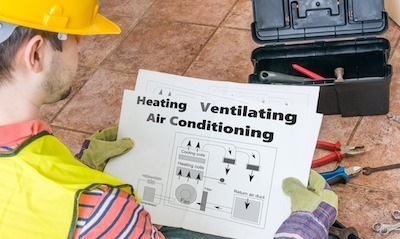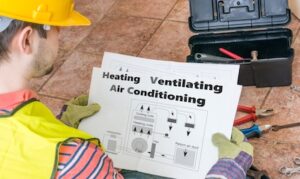
Expense Your HVAC Costs
You may not realize it, but the temperature of your building or office can have an impact on your employees. No one wants to freeze in the winter or sweat in the summer while trying to complete their work. Employee satisfaction and comfort translates into superior performance and results.

Regardless of the size of your building, heating, ventilation, and air conditioning (HVAC) can be expensive to run and maintain. While a landlord might be responsible for the actual units and upkeep, part of those costs are paid by tenants, depending on the contract you’ve signed.
Much like other expenses, claiming HVAC on your annual tax return can fall into several different categories. Experienced CPAs and tax advisors are aware of these rules, and they work to stay current on changes.
The Moving Parts
When you have a clear idea of what machinery and components make up an HVAC system it’s easier to understand how they work. While this isn’t a complete list, it will help you prepare questions for your financial services provider.
- Air Conditioner
- Boiler
- Ductwork System
- Furnace
- Piping System
- Roof Top Unit (RFU)
Your Property
The tax advisor you hire will need to know if you own the property that contains your operation – it’s also known as unit of property (UOP). This is key because it will help determine if any work you’ve paid for on your HVAC system is a repair or improvement.
In the case where you don’t own the building, that does mean you can’t claim some of the expense – that amount can be determined by your financial advisor.
HVAC systems require ongoing maintenance and upgrading, which is also known as “betterment.” In many cases, this term is used when a system has been improved by adding additional components and controls that enable it to produce better results.
When you decide to replace an HVAC unit, the cost associated with this can be claimed as an expense. Factors including productivity, efficiency, strength, and quality are all taken into account. Don’t forget that a new HVAC unit also helps a building become more energy efficient, and can help your business save money.
Maybe you didn’t decide to replace an HVAC system, but invested in upgrades. What you can claim on your taxes depends on how much of the original equipment was improved, along with any brand new components that were needed.
Types of improvements that fit into this category include:
- Chillers
- Cooling towers
- Boilers
- Furnaces
- Rooftop units
All of this work requires the skills of a contractor, and that’s another possible deduction. In the case where your employees have done the work, their wages are already deductible business expenses.
Claiming HVAC expenses can help with your yearly deductions, but you need to make sure you have all of the correct information to share with your CPA.
Document these upgrades and replacements costs throughout the year, and meet with a professional on a quarterly basis to make sure you’re on the right track.
Go Local!
Taurus CPAs work with a variety of different businesses and professional services. We can work with you to document HVAC expenses, along with other investments and improvements you’ve made.
If you have questions about our services or need to speak with one of our experts, contact us today.

Sorry, the comment form is closed at this time.